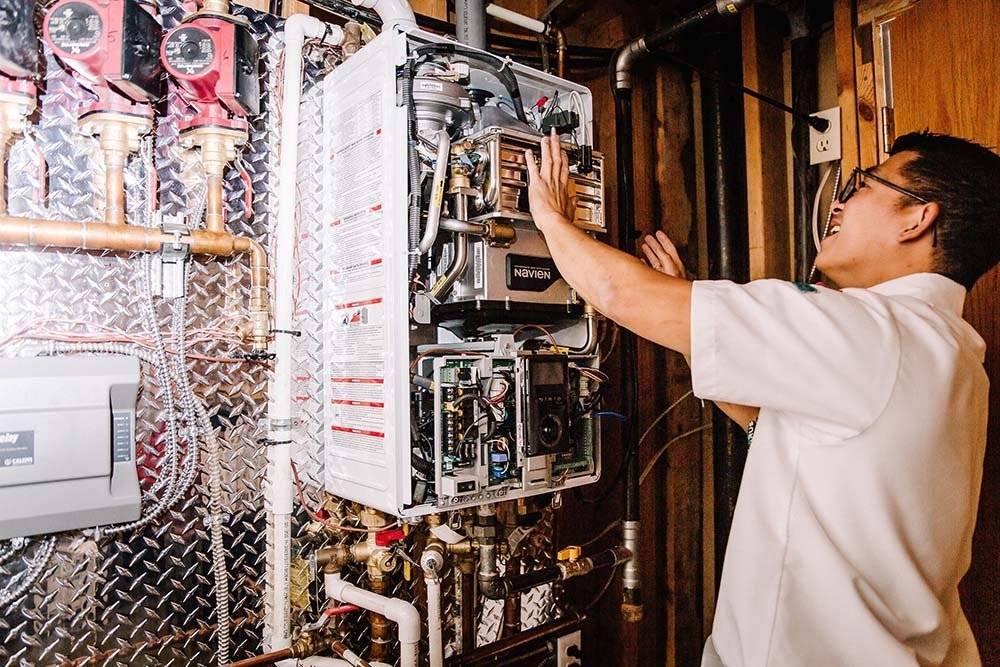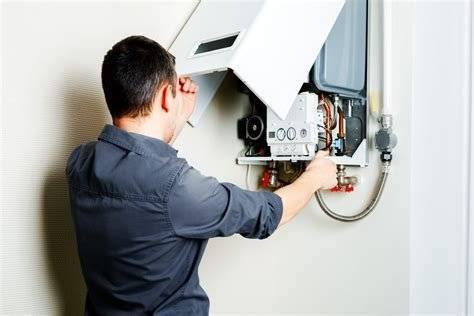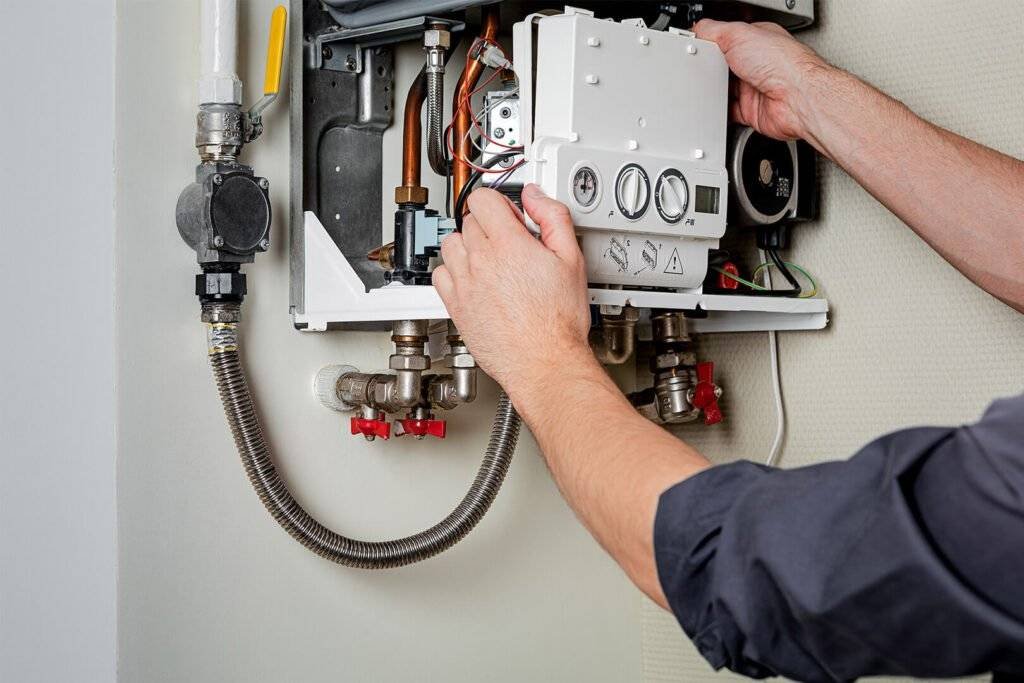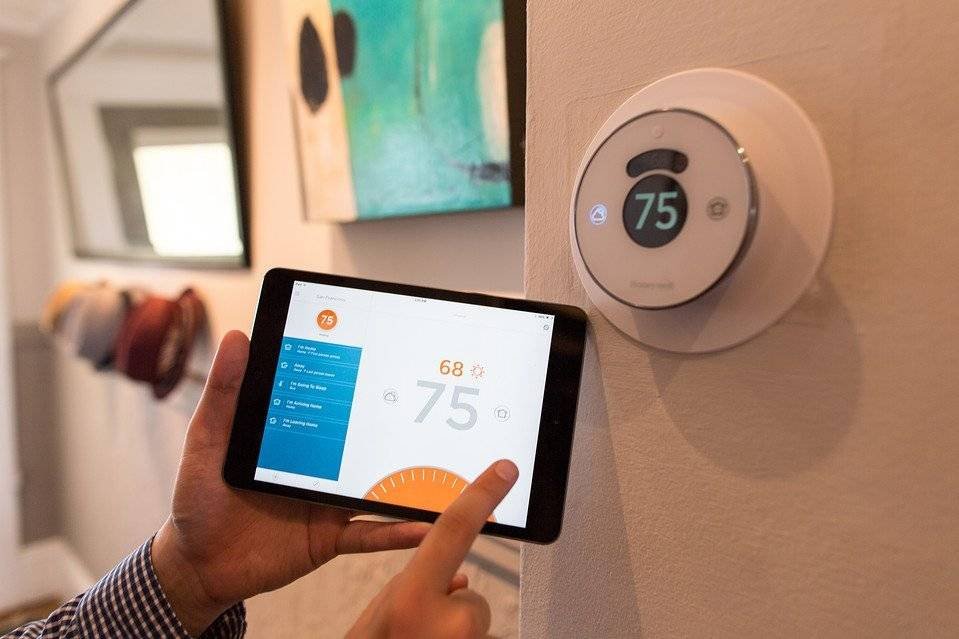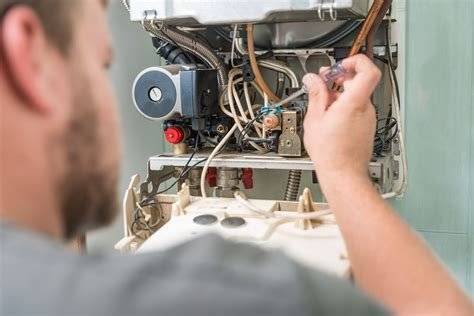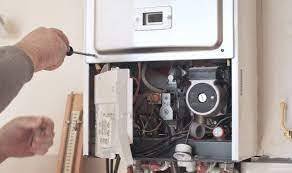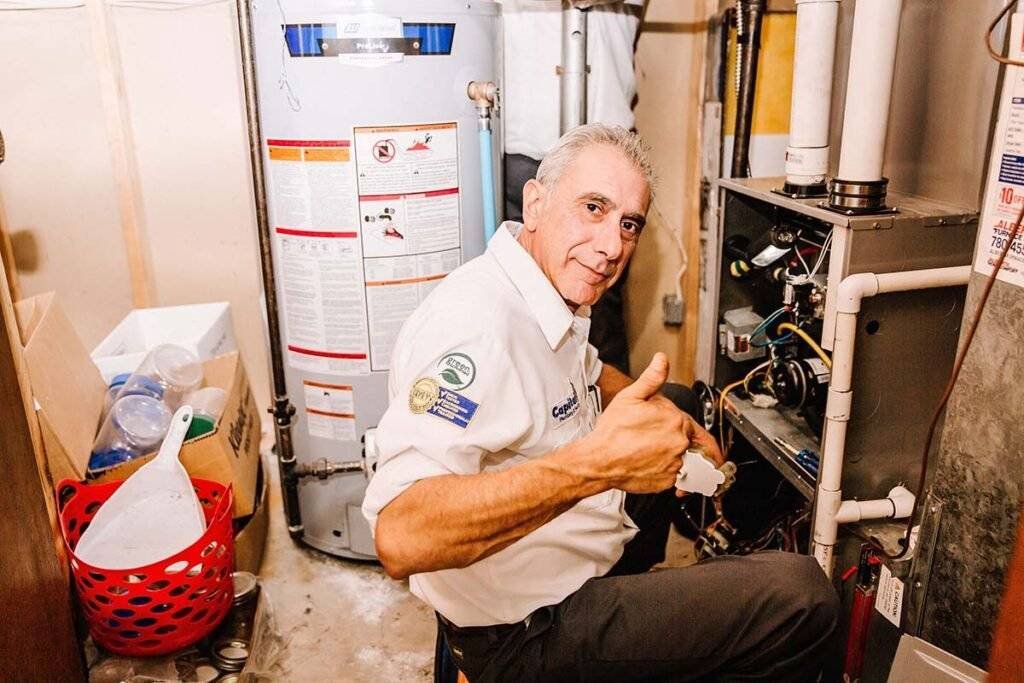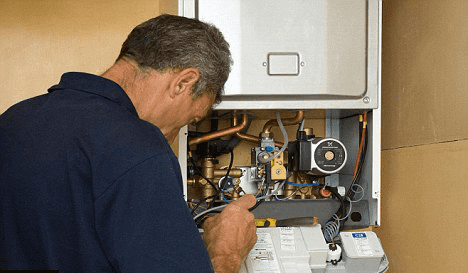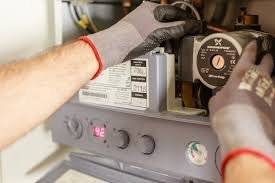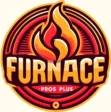Furnace Installation Duffield - Your Dependable Heating Experts
Furnace Pros Plus is your reputable partner for all your heating needs. With years of experience, we focus on delivering top-notch heating solutions to keep your home warm and comfortable. Our group of experienced technicians commit themselves to supplying expert heater setup, upkeep, and repair services. We comprehend the value of an effectively working heater, especially during the cooler months. We focus on effectiveness, affordability, and customer complete satisfaction in every job (big or small). Whether you require a brand-new heater, a regular check-up, or emergency repairs, rely on Furnace Pros Plus for reliable and effective heating services that make sure peace of mind and comfort.
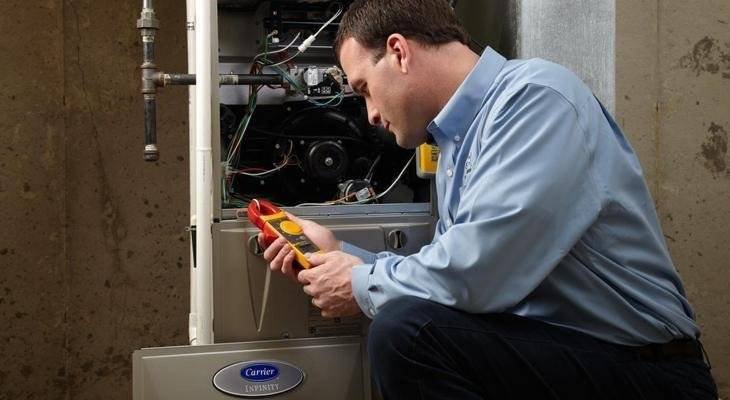
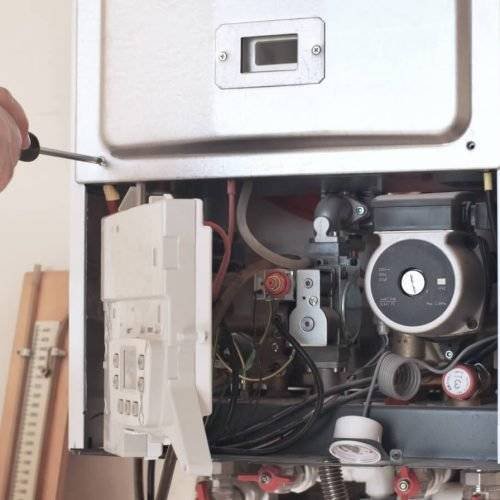
Who Are We?
Residential Heating Replacements and Repairs
Furnace Pros Plus stands out as the premier heater setup and repair company in Duffield, due to its commitment to quality, customer complete satisfaction, and expertise. This well-established heating contractor has earned a strong track record by regularly delivering reputable and effective heater solutions customized to the distinct requirements of each customer.
Among the crucial elements that set Furnace Pros Plus apart is its group of highly experienced and certified technicians. Each specialist brings a wealth of experience and is carefully trained to deal with a vast array of heater systems, from older models to the current technology. This guarantees that no matter the type or intricacy of the heater, Furnace Pros Plus has the expertise to efficiently identify and deal with any issues.
Additionally, Furnace Pros Plus puts a high top priority on customer support. The company comprehends that heater issues can be disruptive, especially during the severe Duffield winter seasons. As a result, they use timely and reputable service, making sure that their technicians are available 24/7 to resolve any emergency situations. This responsiveness minimizes downtime and guarantees that homes and services are kept warm and comfortable without significant delays.
Furnace Pros Plus also sticks out for its commitment to using only premium parts and products. By partnering with leading manufacturers, the company ensures that every setup, repair, or upkeep job meets the greatest requirements of toughness and effectiveness. This not only improves the longevity of the heaters but also enhances their performance and energy effectiveness, which can lead to significant expense savings for customers over time.
The company’s dedication to transparency and reasonable prices even more improves its track record. Furnace Pros Plus offers detailed, in advance quotes without concealed charges, making sure that customers comprehend what they are paying for and can make educated decisions about their heater needs.
Lastly, Furnace Pros Plus adds to the regional community by remaining environmentally mindful and promoting energy-efficient solutions. By encouraging customers on the very best practices and products for lowering energy consumption, they assist Duffield citizens and services decrease their environmental effect and enjoy much better air quality.
All these elements combine to make Furnace Pros Plus the premier choice for anyone looking for reliable and premium heater setup and repair services in Duffield, Alberta
How can we help you?
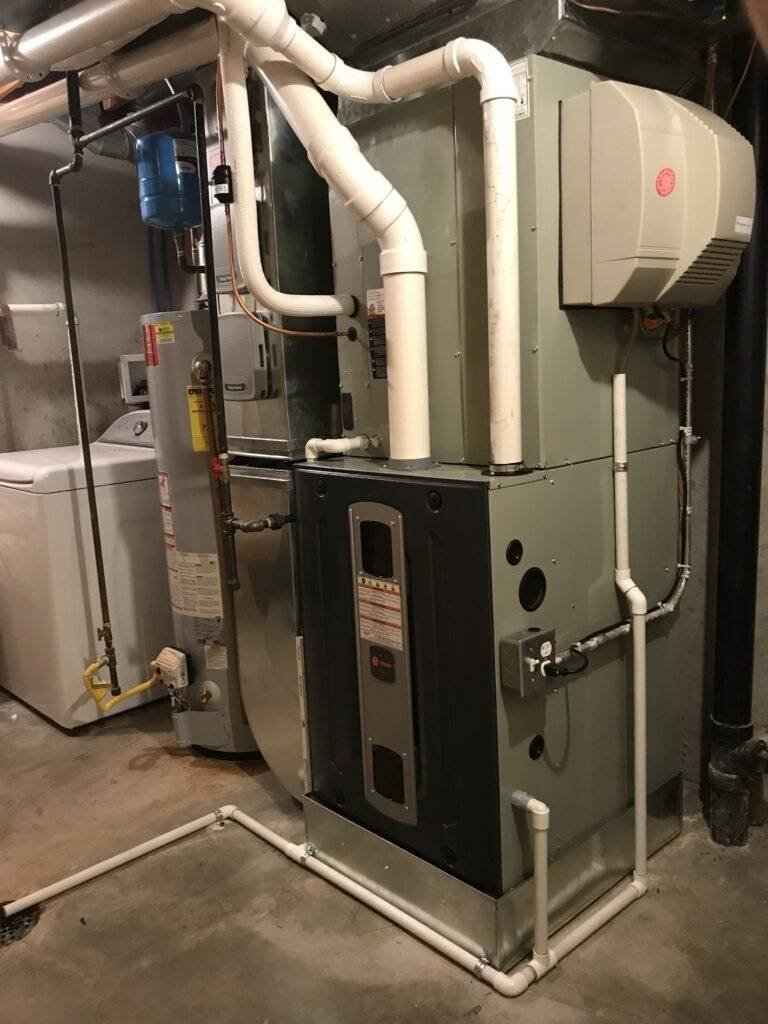
Understanding the Cost of Installing a Modern Furnace
Introduction
An operating heater is necessary when it concerns keeping a comfy and warm home during the cooler months. However, there comes a time when setting up a brand-new heater is unavoidable.
Understanding the costs associated with this procedure is crucial for homeowners to plan and budget appropriately. This thorough guide checks out the numerous elements affecting the expense of setting up a brand-new heater.
Elements Affecting Furnace Setup Expenses
Kind of Furnace:
- Gas Heating Systems: Popular for their effectiveness, they typically cost more in advance however use lower operating costs.
- Electric Furnaces: They are less costly than gas heaters. However, electrical models tend to have greater operational costs due to electricity prices.
- Oil Heating systems: These are less common and can be more pricey due to the expense of oil.
Furnace Size and Capability
- Square Footage: The size of your home directly impacts the capability required for the heater.
- BTU Rating: Greater BTU ratings relate to more powerful heaters, which can increase the expense.
Effectiveness Scores
Yearly Fuel Utilization Effectiveness (AFUE):
Greater AFUE ratings indicate much better effectiveness however also come with a greater cost.
Brand and Quality
Top-tier brand names typically command greater prices due to their track record for quality and longevity.
Installation Intricacy
- Existing System: Upgrading from an old system might require extra work and expense.
- Ductwork: The condition and layout of existing ductwork can affect setup intricacy.
- Availability: Difficult access to the setup site can increase labour costs.
Labour Expenses
Labour costs vary by region. In addition, the intricacy of the setup can affect labour costs.
Additional Expenses to Think About
- Permits: Some areas require authorizations for heater setup.
- Inspections: City bylaws might require post-installation assessments for security compliance.
- Thermostats: Upgrading to a smart thermostat can sustain extra costs.
Typical Cost of Furnace Installation
While prices can vary commonly based upon the elements pointed out above, here are some typical expense varieties for heater setup:
- Gas Heating systems: $2,000 to $5,000.
- Electric Furnaces: $1,000 to $2,500.
- Oil Heating systems: $2,500 to $6,000.
These are rough estimates and can vary based upon particular home requirements.
Cost-Saving Tips.
Research and Compare.
Acquire several quotes from different contractors to make sure competitive prices.
Look For Refunds and Rewards.
Look for energy effectiveness rebates provided by energy companies or federal government programs.
Think About Long-Term Cost Savings.
Buying a more effective heater can reduce energy bills over time.
Conclusion
Installing a brand-new heater is a significant investment, and comprehending the costs involved is necessary for any house owner. By thinking about the type of heater, setup intricacy, labour costs, and extra costs, homeowners can much better prepare for this needed upgrade. Remember to seek several quotes, check out available rebates, and consider long-term energy cost savings when choosing.
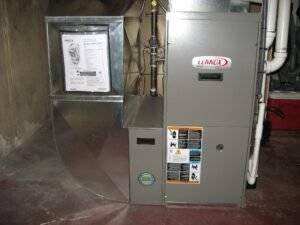
The Right Dimension Furnace for Your Home: A Comprehensive Overview
Introduction
Selecting the best size heater for your home is crucial for making sure effective heating and comfort during the cooler months. A heater that’s too small will not keep your house warm, while one that’s too big can trigger unneeded energy consumption and unequal heating. This guide will assist you identify the ideal heater size for your home.
Understanding Furnace Sizing: BTU and Effectiveness
We measure the size of a heating system in British Thermal Units (BTU). One BTU is the energy required to raise the temperature of one pound of water by one degree Fahrenheit. When picking a heating system, 2 crucial elements contribute: the BTU ranking, showing the heater’s heating capability, and its effectiveness ranking, determined in Yearly Fuel Utilization Effectiveness (AFUE).
Computing Your Home’s Heating Needs
You should calculate your home’s heating needs to identify the appropriate heater size. The computation thinks about elements like square footage, climate zone, insulation quality, window type, and house layout. Typically, you require approximately 30-60 BTUs per square foot. However, this varies based upon your home’s particular characteristics.
Environment Zone and Its Impact on Furnace Size
Your geographic area substantially affects the heater size required. Homes in cooler regions, such as [area], require more BTUs per square foot than those in milder environments. Speak with a heating expert for particular suggestions.
The Role of Home Insulation in Furnace Sizing
Good insulation reduces the amount of heat loss, indicating you can go with a smaller heater. Examine your home’s insulation in the walls, attic, and windows. Upgrading insulation can be an affordable way to lower heating requirements.
Considerations for Various Types of Heating Systems
There are numerous kinds of heaters, like gas, electrical, and oil. Each type has distinct sizing considerations. Gas heaters prevail and effective, electrical heaters are more uncomplicated and much safer however typically more pricey to run, and contractors install oil heaters where natural gas isn’t available.
Value of Professional HVAC Assessment
An expert heating and cooling evaluation is important. Service technicians consider all variables, consisting of ductwork and home layout, to recommend the optimum heater size. They can perform a Manual J computation, the market standard for identifying heating and cooling loads.
Energy Effectiveness and Cost-Effectiveness
Selecting a heating system with a high AFUE ranking is crucial for energy effectiveness and expense savings. Modern heaters have AFUE ratings between 80% and 98%, showing the portion of fuel converted into heating. While high-efficiency heaters are more pricey in advance, they can lead to significant cost savings in the long run.
Dealing With Common Misconceptions About Furnace Sizing
A common misunderstanding is that a larger heater is always much better. However, an oversized heater can lead to brief cycling, where the heater often turns on and off, lowering effectiveness and lifespan. On the other hand, a small heater struggles to warm your home adequately.
Long-Term Advantages of the Right-Sized Furnace
Picking the right-sized heater has long-term benefits, consisting of consistent comfort, lower energy bills, minimized carbon footprint, and less upkeep issues. It’s a balance between in advance costs and long-term cost savings.
Conclusion: Making an Educated Choice
Selecting the best size heater is a choice that impacts your home’s comfort and energy effectiveness for several years to come. By comprehending the essentials of heater sizing and seeking professional guidance, you can make an informed decision that guarantees optimum heating for your home.
Remember, the secret to an efficient and comfortable home lies in picking the best heater and routine upkeep and thinking about other elements like insulation and climate. With this thorough guide, you are fully equipped to select the perfect heater for your home, supplying heat and comfort for lots of winter seasons.
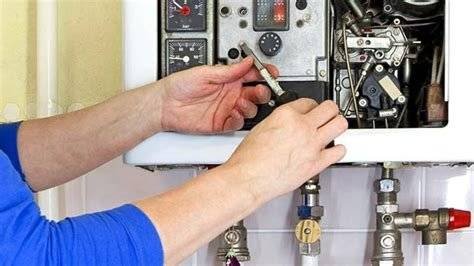
Replace or Repair Furnace: A Exhaustive Overview
Introduction
Deciding whether to replace or repair your heater is a significant decision for any house owner. The choice impacts your instant comfort and security and has long-term financial ramifications. This thorough guide will check out numerous aspects to consider, helping you make a notified decision.
Understanding Your Furnace
Life expectancy and Types
Heating systems typically have a lifespan of 15-20 years. The two main types are gas and electrical, each with different upkeep and operational costs.
Signs of Difficulties
Common signs that your heater might require attention consist of uncommon sounds, irregular heating, and increased energy bills.
When to Think About Fixing Your Furnace
Repair is typically the very best choice for small issues or heaters that are relatively brand-new and still under warranty.
Cost-Effectiveness
Fixing can be more affordable for small issues. However, regular repairs may indicate a much deeper issue.
Ecological Impact
Repair work typically have a lower environmental effect than changing the whole unit.
When Replacement is the Best Option
You ought to consider replacement if your heater is near the end of its lifespan, repairs are ending up being increasingly pricey, or if it could be more energy effective.
Long-term Cost Cost Savings
While the initial expense is greater, a brand-new heater can be more energy-efficient, saving you money on energy bills.
Technological Developments
More recent models include sophisticated technology, such as smart thermostats, which use much better temperature control and effectiveness.
Weighing Your Options
Cost Analysis
Compare the expense of repairs over time versus the one-time expenditure of a brand-new heater.
Energy Effectiveness
Examine how your current heater’s effectiveness is impacting your energy bills.
Home Worth
Consider how a brand-new heater may increase the value of your home, especially if you plan to sell in the future.
Professional Suggestions
Looking For Professional Viewpoint
Talk to HVAC specialists to evaluate the state of your current heater and get estimates for repair and replacement.
Value of Routine Maintenance
Routine upkeep can extend the life of your heater, whether you choose to repair or replace it.
Conclusion
In conclusion, choosing to repair or replace your heater depends upon numerous elements, consisting of age, condition, expense, and energy effectiveness. By thinking about these elements and seeking professional recommendations, you can decide that guarantees comfort, security, and financial vigilance for your home.
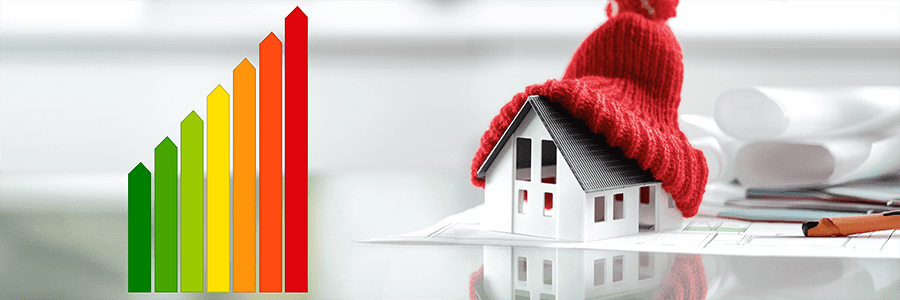
What Time of Year is the Most Affordable to Change Your Furnace?
Will a New Energy-Efficient Furnace Lower Your Residence Insurance Coverage?
Introduction
Home upkeep can be a significant investment, especially when it involves crucial systems like heating. Among the most considerable costs homeowners deal with is changing their heater. However, timing this replacement can lead to significant cost savings. This post checks out the very best time of year to replace your heater, thinking about cost-effectiveness and functionality.
Understanding Furnace Replacements
The Requirement for Replacement
Before delving into timing, it’s vital to comprehend why and when you ought to replace your heater. Common indicators consist of regular repairs, heating ineffectiveness, and the unit’s age (typically beyond 15-20 years). Changing an outdated or malfunctioning heater enhances heating effectiveness and guarantees security and comfort during cooler months.
Elements Affecting Furnace Rates
Several elements affect heater prices, consisting of the type of heater, brand, capability, and the intricacy of setup. Seasonal demand is another significant element, typically ignored, yet it plays an essential role in identifying the expense.
Best Time for Replacement: Off-Season
Why Select Off-Season?
The off-season, primarily spring and early fall, is normally the most affordable to replace a heating system. The demand for heater is lower during these durations than during the peak cold weather. Lower demand typically results in more competitive prices from manufacturers and installers.
Advantages of Off-Season Replacement
- Lower Expenses: Lowered demand can lead to discounts and more consumer working out power.
- Availability of Technicians: heating and cooling technicians are less hectic during these times, making sure more versatile scheduling and quicker setup.
- Sufficient Time for Research: The off-season provides homeowners sufficient time to research study different heater models and choices without the pressure of instant need.
Preparation Ahead
Using the off-season requires planning. Anticipate the need for replacement and schedule it when the demand is low. This insight saves money and prevents the inconvenience of a heating system breaking down in the middle of winter.
Winter: The Peak Season
Difficulties of Winter Replacement
- Greater Rates: The demand for heater setup and repair peaks during winter, resulting in greater prices.
- Busy Schedules: Discovering a specialist might be more tough, and you may have to wait longer for a visit.
- Emergency Replacements: If your heater breaks down in winter, you may have to go with an instant replacement, which leaves little room for expense contrast or settlement.
Other Considerations
Energy Effectiveness and Rebates
Buying energy-efficient models might be more pricey in advance however can lead to long-term cost savings. Likewise, keep an eye out for rebates and tax credits provided for energy-efficient home improvements.
Value of Routine Maintenance
Routine upkeep can prolong the life of your heater, delaying the need for replacement. It’s an essential element of home care that you ought to pay attention to.
Conclusion
Timing your heater replacement can lead to significant cost savings. The off-season, especially spring and early fall, is typically the most affordable period for this investment. Preparation, thinking about energy effectiveness, and keeping your current heater can optimize costs and make sure a warm, comfortable home.
Introduction
House owners typically contemplate whether upgrading their home appliances and systems can lead to cost savings on their home insurance premiums. One common concern is whether setting up a brand-new heater decreases home insurance costs. This post delves into how a brand-new heater setup may impact your home insurance, using insights into insurance plan, danger management, and possible cost savings.
Understanding Residence Insurance Coverage Premiums
Before diving into the specifics of heaters and insurance, it’s crucial to comprehend what elements affect home insurance premiums. Insurer evaluate numerous elements, consisting of:
- Residential Or Commercial Property Age and Condition: Insurance Agents see newer homes with updated systems as lower threats.
- Area: Geographical area and regional climate can substantially affect insurance rates.
- Security Functions: The presence of alarms, smoke detectors, and other security gadgets can reduce premiums.
The Impact of a New Furnace on Residence Insurance Coverage
Installing a brand-new heater in your house can have numerous ramifications for your home insurance:
- Lowered Danger of Fire and Gas Leakages: Modern heaters with sophisticated security functions decrease threats like fire or gas leakages. This danger reduction can be favourable in the eyes of insurance service providers.
- Improved Energy Effectiveness: Newer heaters are typically more energy-efficient, resulting in lower energy costs and a minimized environmental footprint, indirectly impacting insurance considerations.
- Enhanced Home Worth: Upgrading to a brand-new heater can increase your home’s market price, which may affect the coverage you require.
Possible Insurance Coverage Discount Rates
Some insurance provider use discounts for home improvements that lower danger. These may consist of:
- Protective Gadget Discounts: You may qualify for a discount rate if your brand-new heater includes sophisticated security functions.
- Green Residence Discounts: Some insurance providers supply unique discounts for setting up energy-efficient devices.
Paperwork and Appraisal
To leverage a brand-new heater setup for insurance benefits, consider the following:
- Professional Setup: Ensure a certified professional installs your heater, which can be a prerequisite for insurance benefits.
- Keep Records: Preserve all receipts and documents for the heater purchase and setup.
- Inform Your Insurer: Alert your insurance provider about the upgrade. They might require an inspection or extra documents.
Considerations Before Upgrading
While a brand-new heater can use benefits, consider the following:
- Cost vs. Benefit Analysis: Examine if the long-term cost savings on insurance and energy bills validate the initial expense of a brand-new heater.
- Insurance Policy Review: Consult with your insurance agent to comprehend how a brand-new heater may specifically impact your policy.
Conclusion
Upgrading to a brand-new heater can reduce your home insurance premiums by lowering danger and improving your home’s security and effectiveness. However, the effect varies based upon private insurance plan and the particular functions of the heater. It’s recommended to consult with your insurance company to comprehend the complete benefits and ramifications of a brand-new heater setup.
Frequently asked questions
Q: How much can I save money on my home insurance by setting up a brand-new heater?
A: Cost savings vary based upon the insurance company and the particular functions of the brand-new heater. Talk to your insurance agent for detailed info.
Q: Exist any particular kinds of heaters that are more favourable for insurance discounts?
A: Heating systems with sophisticated security functions, high energy effectiveness ratings, and those that satisfy particular environmental requirements are typically more favourable.
How to Get ready for a Heater Installation
Installing a brand-new heater in your house is a significant investment and an essential upgrade to your home. It improves the comfort of your home and enhances energy effectiveness. Proper setup preparation is crucial to make sure the setup procedure is smooth and stress-free. This post will direct you through the needed actions to prepare for a heating system setup.
Understanding Your Heating Needs
Examining Your Space: The primary step is to evaluate the size of your space and comprehend the heating requirements. A too-large or too-small heater for your home can lead to ineffectiveness and greater energy costs. Consulting with a heating professional to identify the best heater size is crucial.
Selecting the Right Furnace: There are numerous heaters, consisting of gas, electrical, and oil. Each has benefits and drawbacks; the choice depends upon your area, budget, and personal choice. Research and consult with specialists to make a notified decision.
Pre-Installation Preparation
Picking a Certified Installer: We can not overemphasize the value of choosing a certified and experienced installer. Look for specialists with good evaluations and appropriate accreditation. They will make sure an appropriate setup and guide you through the procedure.
Cleaning the Area: Ensure the location where you plan to install the heater is clear of any clutter. A tidy location offers easy access to the setup group and speeds up the procedure. Remove any valuable or vulnerable items from the area to avoid unexpected damage.
Getting ready for Downtime: Depending on the intricacy of the setup, your heater might be down for a couple of hours to a day. Plan appropriately, especially if the setup is during cooler months.
Throughout Setup
Access to Your Home: Ensure the installers have easy access to your home, that includes making sure that parking is available and a clear path to the heater area.
Communication: Stay available to answer any questions the installers may have. Clear communication can assist deal with any issues rapidly and guarantee your setup goes as planned.
Post-Installation Checks
Examine the Installation: Once the setup is total, check the deal with the installer. Ensure that the setup is total and that the location is tidy.
Understanding the System: Have the installer describe the functioning of the brand-new heater, consisting of how to alter filters and the fundamental troubleshooting actions.
Service warranty and Paperwork: Guarantee you get all needed documents, consisting of warranty info and running handbooks. Keep these files in a safe place for future referral.
Conclusion
Getting ready for a heating system setup involves comprehending your heating needs, picking the best heater, and choosing a certified installer. By following these actions, you can make sure a hassle-free setup procedure and enjoy the comfort and effectiveness of your brand-new heater for several years to come. Remember, a little preparation goes a long way in making sure a smooth and effective heater setup.
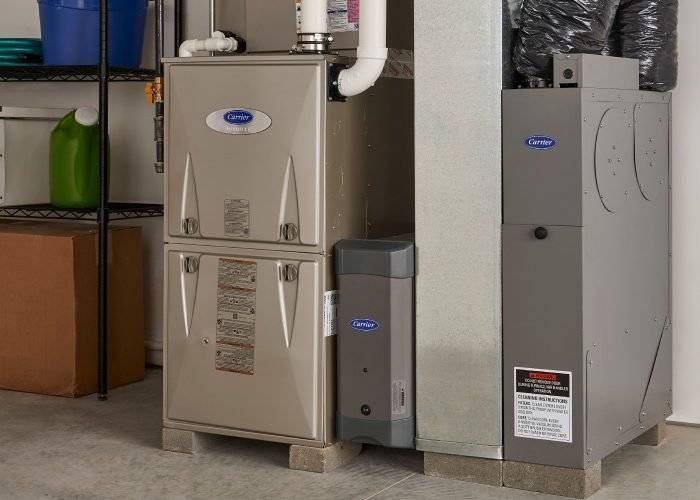
Our Work
